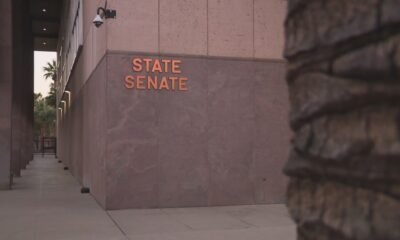Business
Arizona’s Leaders Snooze as Semiconductor Sector Sizzles
Arizona’s leaders face a critical juncture as the future of the state’s semiconductor industry hangs in the balance. Following a significant announcement on March 3, 2025, regarding a $100 billion expansion by TSMC in the Phoenix area, concerns are rising after President Trump’s subsequent remarks labeling the CHIPS Act a “horrible, horrible thing” that should be repealed.
The repercussions of repealing CHIPS funding would be severe for Arizona’s burgeoning semiconductor sector. With the potential loss of $6.6 billion in subsidies and $5 billion in loans from the CHIPS Act, the state’s leadership has remained alarmingly quiet. Local officials should be urgently demanding clarity on whether TSMC’s federal financial support will continue.
TSMC’s expansion is not merely a private-sector achievement but a project heavily reliant on taxpayer funding. Significant state and local incentives, including tax breaks and infrastructure investments, were committed without full transparency regarding the financial implications for Arizona residents.
As of now, TSMC’s primary facility has initiated operations, currently producing 10,000 wafers monthly, with plans to maximize to 24,000 by late 2025, contingent on funding stability. Yet, the specter of a reversal calls into question the viability of this operation. Will the state be left with idle facilities? Where is the risk management strategy?
The promise of thousands of high-paying jobs has largely fallen short, as TSMC has welcomed 1,500 skilled workers from Taiwan. This decision underscores a harrowing reality: Arizona’s workforce is not prepared to meet the demands of such a pivotal industry. While educational institutions like ASU are developing semiconductor programs, they came up short of readiness before TSMC’s commitments.
Arizona legislators have historically favored tax incentives over robust workforce training initiatives, resulting in a workforce that remains unprepared. The lack of local talent in high-skill roles poses a direct challenge, demonstrating the urgent need for a reevaluation of prioritization in economic policy.
With Arizona’s existing policies complicating matters further, immigration restrictions have exacerbated labor shortages in construction and supply chains. Rising tariffs on materials necessary for the state’s semiconductor projects have inflated costs and hindered progress. Questions arise about whether state officials are advocating for necessary tariff exemptions.
The potential fallout if CHIPS funding is revoked looms large. Arizona will not only suffer a loss of future expansions but also the financial burden of infrastructure investments that may yield no returns. Without proactive measures, local workers risk being sidelined as skilled labor continues to be imported.
The urgency of the situation is palpable. Arizona’s leaders must take decisive action. They need to secure assurances regarding the continuity of CHIPS funding and provide transparent disclosures about the financial commitments made to TSMC.
Immediate efforts to bolster the semiconductor workforce pipeline are crucial. Additionally, advocating for relief from tariffs and rethinking immigration policies is essential for sustaining Arizona’s economic health.
This situation transcends party lines; Arizona’s economic future hangs in the balance. Failure to act could transform the semiconductor sector from a promising venture into a profound economic blunder for the state.
Leslie Addison is a political analyst and writer focused on government accountability and civic engagement. Based in Phoenix, she is committed to advocating for policies that enhance public welfare and state autonomy.


















